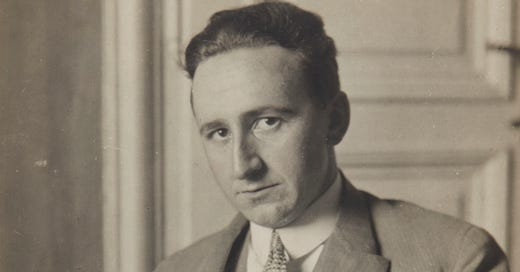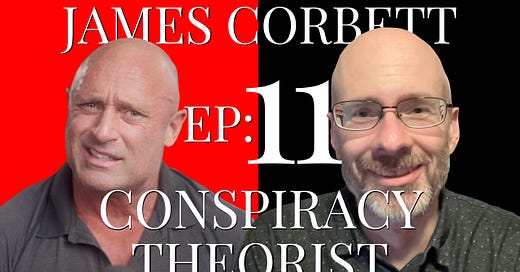
Hayek Gives Liberal Democrats Its New Name
Word on the street is that the Liberal Democrats are searching for a new name.
Malcolm Turnbull and the Greens forced it upon them. It was his parting gift.
It is now the Eleventh Commandment.
“Thou shalt not use any English word of an older party’s name in your own.”
So, despite being named the Liberal Democrats for 21 years, the Liberal Party government took the Liberal Democrats to court and won. The Liberal Democrats challenged the decision in the High Court and lost.
And just like that, the Liberal Party owns a monopoly right to the word ‘liberal’ despite being one of the most illiberal governments in existence today.
Of course, this is old news.
The amazing development is that Friedrich Hayek himself has come back from the grave and offered a suggestion for a new name!
Hard to believe, right?
And yet, here he is in black and white pondering the very same question about an appropriate party name for classical liberals.
In his famous 1960 essay Why I Am Not A Conservative in which he affirms the clear differences between socialists, conservatives and liberals, he wrote:
“In the United States, where it has become almost impossible to use ‘liberal’ in the sense in which I have used it, the term ‘libertarian’ has been used instead. It may be the answer; but for my part I find it singularly unattractive. For my taste it carries too much the flavour of a manufactured term and of a substitute. What I should want is a word which describes the party of life, the party that favours free growth and spontaneous evolution. But I have racked my brain unsuccessfully to find a descriptive term which commends itself.”
Having eschewed the word ‘libertarian’, he then strikes upon an idea.
“We should remember, however, that when the ideals which I have been trying to restate first began to spread through the Western world, the party which represented them had a generally recognized name.
It was the ideals of the English Whigs that inspired what later came to be known as the liberal movement in the whole of Europe and that provided the conceptions that the American colonists carried with them and which guided them in their struggle for independence and in the establishment of their constitution.
Indeed, until the character of this tradition was altered by the accretions due to the French Revolution, with its totalitarian democracy and socialist leanings, “Whig” was the name by which the party of liberty was generally known.
The name died in the country of its birth partly because for a time the principles for which it stood were no longer distinctive of a particular party, and partly because the men who bore the name did not remain true to those principles. The Whig parties of the nineteenth century, in both Britain and the United States, finally brought discredit to the name among the radicals.
But it is still true that, since liberalism took the place of Whiggism only after the movement for liberty had absorbed the crude and militant rationalism of the French Revolution, and since our task must largely be to free that tradition from the over-rationalistic, nationalistic, and socialistic influences which have intruded into it, Whiggism is historically the correct name for the ideas in which I believe.
The more I learn about the evolution of ideas, the more I have become aware that I am simply an unrepentant Old Whig – with the stress on the ‘old.’ ”
And there you have it.
What do you think?
According to Friedrich Hayek, you are a Whig.
The long history of the Whigs is rich and worth exploring. The ‘Old Whig’ phrase was coined by Edmund Burke who best reflected its views. Famous Whigs have included or been influenced by John Locke, Adam Smith, former British Prime Minister William Lamb, 2nd Viscount Melbourne, after whom the grand city of Melbourne is named, and most of the pre-revolutionary American patriots.
You adhere to the principles of Whiggism. You are Whiggish in your philosophical leanings.
Vote #1, the Whigs!
The post Hayek Gives Liberal Democrats Its New Name appeared first on Liberty Itch.













